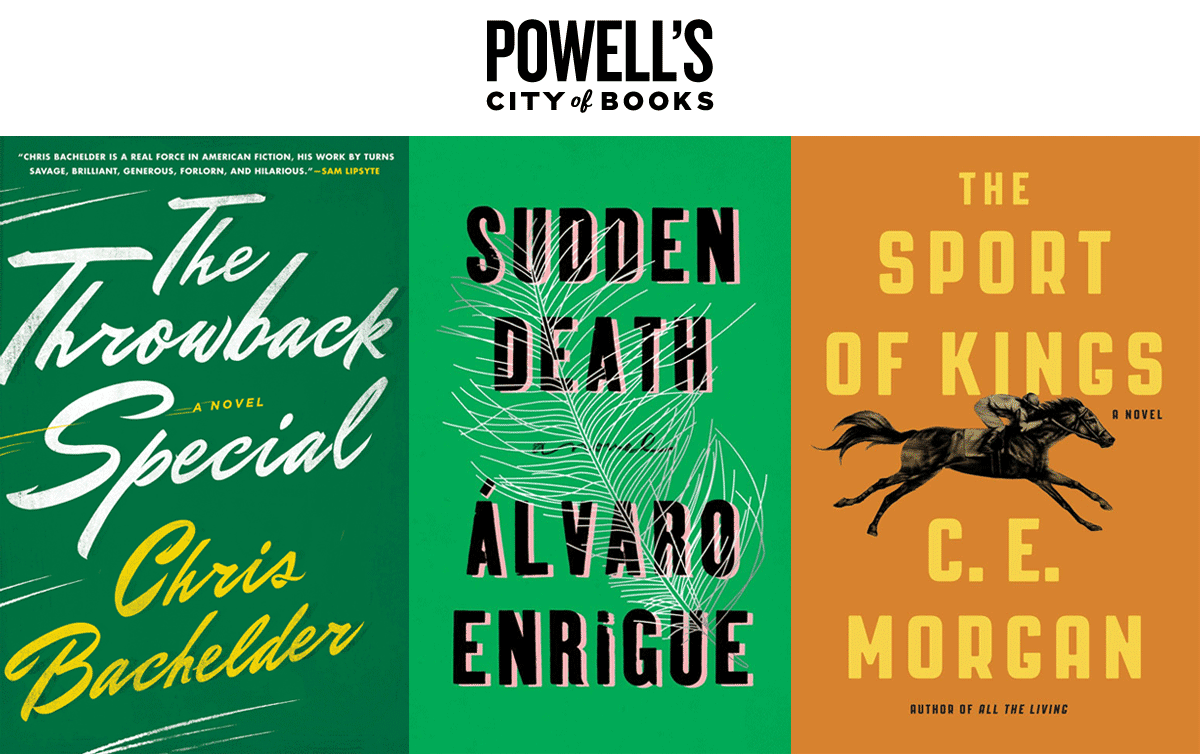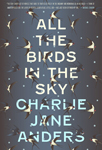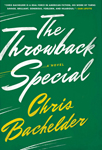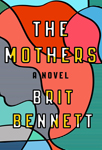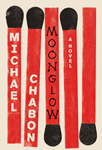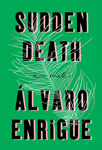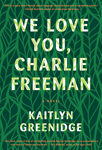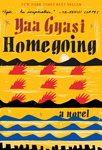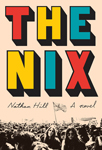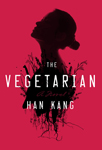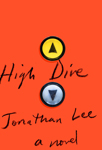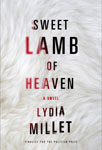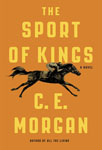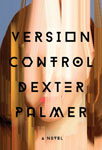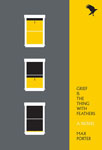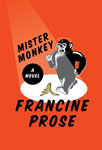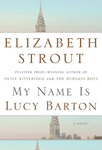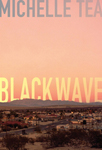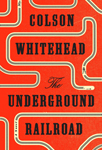by Charlie Jane Anders
Buy it at Powell’s »Jason Diamond: I’m usually skeptical about any book somebody calls a “Great American Novel.” I think there’s reason to feel that way, yet there is something about a hefty book mixing family drama, the South, class, racism, and horse racing that just gets my attention. Sure, it is called a “Great American Novel” by Philipp Meyer on the back cover, but I’ll take it.
I don’t think there’s one kind of fiction that defines America, but C. E. Morgan’s The Sport of Kings is a great novel, and it’s very American. Like Chad Harbach’s The Art of Fielding (another book that got the GAN tag slapped onto it, and a book I loved), there’s a sport (in this case, horse racing) that ties the story together but isn’t what the book is about. It’s also very Melvillian. Man’s obsession with an animal helps tell a bigger story in the way that Moby-Dick is about a dude chasing a whale, but it’s not really about that, even though it kind of is. Get it?
Like Moby-Dick taught me a lot about the anatomy of a whale, Morgan does a lot of educating the reader on horses: “The Quarter is a cutting horse and the Morgan is a generalist. The Kentucky Saddle is a smooth ride, the Connemara a great jumper, the Mustang an independent.” When we finally get to how “only the Thoroughbred can claim to be the fastest horse in the world,” we’re finally seeing why people are obsessed with them. I wanted to book a ticket to Louisville and explore the world of racing even more.
If there’s anything Morgan’s book suffers from, it’s maybe giving us too much to take in (as the New York Times review points out, there’s enough arson, incest, hate crime, murder, and wealth “to sustain a 1980s-era television mini-series”)—like maybe a story like this could have (gasp!) been longer than 500-plus pages, or possibly part of an even bigger story. That’s not something I’d usually hear myself say, but Morgan gave us a lot, and I just wanted to read much more. That’s a tribute to her, but also, well, left me thinking what else could have been. It’s a superb and ambitious novel, and the only other thing that irked me while reading The Sport of Kings was disappointment in myself that I wasn’t sipping from a glass of Elijah Craig the entire time.
Metaphor also works its way into Chris Bachelder’s very funny and very good novel, The Throwback Special. Yet instead of tossing off a Melville comparison, let’s go ahead and state right off the bat that there’s something much more Saundersian about this novel. Yeah, Bachelder earns a spot alongside George Saunders, Sam Lipsyte, Joy Williams, Paul Beatty, and Jim Shepard on my bookshelf. He’s funny, but it’s not the LOL kind of funny; he’s not pulling one-liners and fart jokes to get the reader to chuckle. Instead, the book has the kind of premise that might have you thinking that it’s weird: a bunch of middle-aged dudes reenacting the 1985 play (one of the most shocking plays in American sports history) when New York Giants linebacker Lawrence Taylor sacked Washington quarterback Joe Theismann. I’m told the footage is horrible, and features bone ripping through skin and all that (I won’t watch it, and I tend to love movie gore).
It’s a pretty brilliant and frankly risky thing to set a novel around a bunch of guys of a certain age looking to connect. That sort of plot has sucked as much as it has succeeded in other works, but Bachelder treats it in a humorous way that isn’t mean-spirited. He really tries to dig into what it means to be a middle-aged guy and how hard it is. He’s funny, but never cruel, and even though the book has a cast of 20-plus characters, they each get their due in some small way in just over 200 pages. It’s a brilliant trick, blending them all together, and his way of trying to give us an idea of each individual guy who has “reached an age when they gained and lost significant things in relatively short periods of time,” sort of in a way resembles how Melville describes whales and ships or Morgan writes about horses. We get T-shirts, sleeping habits, and nicknames: “Gary’s tank top read I ATE THE MEGABURGER, and he snored aggressively,” while the guy they call Bald Michael rocks a Miller High Life T-shirt and “his sleep apnea machine made a pleasant bubbling sound like a fish tank.” George has Darwin’s face on his shirt, while Fat Michael (who is actually really fit; the guys just call him that) has a “sweaty shirt [that] read Bailey’s Peak Challenge 2006.” Those things are supposed to tell little stories about the characters who make up this small book, and it’s clever, but again, I ultimately wanted a little more. And also a hell of a lot less. I respect what Bachelder is trying to do with so many characters. It just sort of drowns out exactly the point I think he’s trying to make, that as men get older they tend to look for any way to connect whether they want to admit it or not, and something as absurd as a reenactment of a famous football play is the way the men in The Throwback Special do it. I just would have liked to have felt more of my own connection with the characters in this otherwise wonderful novel.
If tennis is supposed to be a metaphor for something in Álvaro Enrigue’s Sudden Death, I feel like I missed it. Instead, I closed the book, thinking to myself, “Yeah, that messed with my head in a very good way.”
What we’re presented with is the story of the politician and nobleman Francisco de Quevedo playing maybe the most intense match of tennis of all time against the Italian painter Caravaggio, but it’s laced with historical bits about the game, as well as the author himself writing about the book he’s writing. With all that, you might not think that Sudden Death accomplishes being both a very funny book as well a work that strips the clean and friendly image of the game we might have today, but it does. Tennis is a dirty game played by dirty people in Sudden Death.
There are philosophical nuggets, like the metafictional part at the start about a pair of tennis shoes the author loved as a boy that his mother threw out behind his back. (“It’s no coincidence that when speaking of someone’s death in Mexico we say ‘he hung up his tennis shoes,’ that he ‘went out tennis shoes first.’ We are who we are, unfixable, fucked. We wear tennis shoes. We fly from good to evil, from happiness to responsibility, from jealousy to sex. Souls batted back and forth across the court. This is the serve.”) The book also offers up history lessons, albeit fictional ones. The beautiful red hair from the decapitated head of Anne Boleyn produced a total of four tennis balls, “which were by far the most luxurious sporting equipment of the Renaissance.”
That last little bit is what made me love Sudden Death oh so much. Sure, a bookseller telling me he thinks Enrigue is the heir to Roberto Bolaño gave me some idea what I was in for—a claim, I must say, that I regard with similar apprehension to Great American Novels—but it’s the thinking I did after I finished the small novel that made the book stick with me.
Tennis and the humans who play it can make for great literature. John McPhee knew that, which is probably why he spent an entire book diving into Arthur Ashe playing Clark Graebner at the US Open in 1968. David Foster Wallace saw something otherworldly in Roger Federer. Vladimir Nabokov and Martin Amis figured out how to work the sport into some of their most famous novels, while Claudia Rankine dove into the “meaning” of Serena and gave us another classic and vital piece that’s about a tennis player, yes, but the subhead of Rankine’s 2015 piece gives away what the piece is really about: “On tennis and black excellence.”
Writing about a sport should never be just about a game. Sure, you need your daily recaps and breakdowns. Tell us why this trade will matter in the long run, or how a starting guard going down with an injury can actually benefit a team. But there’s always a deeper story there. That drive, those muscles moving in rhythmic motion, the fans who pack their heart and soul into stadiums to cheer and cry for their athletes—it’s always more than a person kicking a ball up the field. All three of these books explore that richness, but Enrigue’s contribution is more artful. His work is twisting and winding and screwing with the reader in a way that never gets tiresome. What’s this book even about, I had to ask myself at some point. It’s a tennis book, right? It’s a strange and hilarious exploration of the sport and how it’s an art as much as a competition. It asks whether competition is like war, and explores how both sports and war are rooted in violence and lust. Something like that? Yeah, that sounds about right.
Whatever it is, Sudden Death is an incredible book. I still find myself dwelling on what it all means weeks after putting it down. I think that says a whole lot about why I ended up with going with it in the end. The Throwback Special and The Sport of Kings are both fantastic books that I’d urge any person to read, but there was something so strange, scary, and enchanting about Enrigue’s novel that I felt it was necessary to go back and read it again.
Match Commentary
By Kevin Guilfoile & John Warner
John Warner: Cock-a-doodle how do you do! Lucky year 13 of the Tournament of Books, which happens to coincide with the Chinese calendar Year of the Rooster, which makes the occasion extra auspicious.
Returning fans will notice a lot of similarities: 16 books to the main draw following today’s play-in, Zombie books coming back from the dead, Field Notes and Powell’s as the sponsors that allow it all to happen, a space for the commentariat to tell us about all the things we get wrong below.
You and I are still in the booth, our blood-red ToB blazers perhaps a little snugger each year, but we have some exciting guests who will be taking over at different times.
Kevin Guilfoile: Every year we try to throw in a twist or two and this year is no different. Several times each round, you and I are going to step aside and let independent booksellers from across the country weigh in on that day’s judgment.
When we started the ToB, conventional wisdom said the bookstore was dying. Thirteen years later, indie bookstores are coming back strong and we are excited to celebrate that fact with insight from the front lines of literary culture as part of this year’s Rooster.
One thing I was thinking about when considering this matchup was the kinds of athletes novelists are most drawn to. Horse racing is a pretty familiar subject in literature. While more ambitious, The Sport of Kings owes a tremendous debt to dozens of Dick Francis novels, where English race tracks are always the location of (or adjacent to) scenes of murders, kidnappings, and heists. Baseball, too, got a decent workout in 20th-century fiction, from The Natural to Shoeless Joe. Football not so much, outside Exley’s A Fan’s Notes, DeLillo’s End Zone, and the prolific oeuvre of former Atlanta Falcons defensive end Tim Green.
John: The Theismann leg break tackle is almost like a Kennedy assassination moment for sports fans of our vintage. I’m almost certain I saw it live, but I couldn’t say for sure. I do know that it’s etched indelibly into my psyche. I can feel it there even as I type. Jason Diamond is just a titch too young to have that kind of connection. How much difference do we think these things make?
I can’t say I feel nostalgia for the moment, but it feels important, one of those shared touchstones of life.
Kevin: Right. I take it for granted I was watching when it happened—it was Monday Night Football in the ’80s so there’s a good chance—but I don’t have any specific memory of the moment, even if the acute angle of Theismann’s leg could be measured to the half-degree just from the picture in my head. I don’t remember if I was home watching with my dad or over at a friend’s house. It was a gruesome thing that occurred live on network television, however, and so it became part of our collective unconscious. The snapping of Theismann’s tibia was something that happened to all of us, in that we didn’t choose to watch it but we all shared the experience anyway.
John: Nostalgia can do some interesting things to us. Judge Diamond is an interesting choice here because his recently published memoir, Searching for John Hughes, is about a kind of nostalgia for something that never existed, although he wishes it did. I actually grew up in John Hughes’s suburbia as well—his films were being released when I was just a smidge younger than the protagonists. Sixteen Candles came out when I was in middle school. Ferris Bueller’s Day Off was filmed at my high school my freshman year.
I enjoyed John Hughes movies as much as anyone, but I think something about my proximity to the source material also made it clear how his movies were overstuffed with romantic hooey. It was like, nice thought, Mr. Hughes, but shit doesn’t work that way.
The Throwback Special, one of my favorite books of last year, trucks in a kind of nostalgia, but rather than resulting in a wistful, romantic, faintly false air, it shows the way these things can curdle over time, or maybe even that they were rotten from the get-go.
Fortunately, I’ve come into a life that is largely free of the “what the fuck has happened to me?” ennui that Bachelder’s reenactors are trying to break through, but I also recognize it as something that’s getting at some truths of the culture we live in.
Kevin: Bachelder’s novel is a new take on a genre whose archetype is probably Jason Miller’s play (and movie—who am I kidding, I never saw the play) That Championship Season. It’s a more biting and smarter and more self-aware version of the Kurt Russell and Robin Williams film The Best of Times.
I have a complicated relationship with sports-related fiction. I think it’s hard to pull off. Part of it might be that sports is already a manufactured drama—a game is a fiction we put on for ourselves in order to make us feel the adrenaline and rush of high stakes when really there is no cost of failure. If you were a Falcons or a Patriots fan watching the Super Bowl last month, it felt to you like winning that game was extremely important. This is absurd. It doesn’t matter AT ALL. But it is thrilling to pretend for a few hours that it does.
When you read about, say, a fictional baseball game, you are removed from that manufactured tension and the novelist has to build it up again through other means. Too often for me, reading sports novels is like watching a magician through the other side of the curtain. But sports can still be a powerful metaphor in fiction. In Billy Lynn’s Long Halftime Walk (a 2013 ToB competitor) a Thanksgiving Day NFL game is a perfect stand-in for America. Bachelder pulls it off here as well. Although the reenactment itself needn’t have been sports-related (his themes of male friendship could have been examined through a group of men reenacting something equally weird, like an episode of M*A*S*H), putting a football game at the center of this bonding ritual, especially a game they didn’t participate in but rather one that happened to them, was really effective for me.
I have a few quibbles about it—I had a hard time holding all of these male characters as distinct individuals in my head, for instance—but none became an obstacle to enjoying the novel. It’s really good.
John: That said, given the state of the world, I wouldn’t begrudge anyone for not finding interest in a book about middle-class, middle-aged white guys particularly tantalizing. We’ve got a lot to answer for these days.
Kevin: When literature gets to the bottom of why we middle-aged white men are not completely fulfilled in all aspects of our lives it can move on to other subjects, John. Until then, obviously, it must remain dedicated to that lodestar.
Can I get a completely unfair criticism of Sudden Death out of the way? A long time ago (I don’t remember if it was in art history class or on Jeopardy!) I picked up the amazing bit of trivia that Caravaggio allegedly murdered a man during a tennis match. Ever since I heard that, it has completely overshadowed what little else I know about Caravaggio. It is the first thing I think of when I hear his name or see one of his paintings. He killed a guy over a tennis game, John! I don’t think I know a more interesting fact (or alternative fact, perhaps) about a painter.
Given this, why would you write a novel about Caravaggio playing tennis with a guy he doesn’t murder? It would be like the guys in Bachelder’s book getting together each year to reenact the Joe Theismann game in which he quarterbacked the Canadian Football League’s Toronto Argonauts to a meaningless loss against the Montreal Alouettes. Despite the claim by Judge Diamond, the tennis match in Sudden Death is not, in fact, the most intense tennis match ever. The most intense tennis match ever is the one where Caravaggio cut off the other guy’s testicles.
Sorry.
Even beyond that, Sudden Death didn’t really work for me. As Judge Diamond says, I didn’t understand what the totally non-homicidal volleying in the book was supposed to stand for. The conceit about tennis balls made from Anne Boleyn’s hair was pretty good. There were quite a few excellent lines, and the meta stuff about writing felt true. My favorite parts were the digressions about the author. But while I have had the experience Judge Diamond describes, in which you don’t completely understand a novel but find it thrilling anyway (see Bats of the Republic from last year’s tournament), it just didn’t happen this time. Part of this is probably an intellectual/stored knowledge deficiency on my part. Mostly I just wasn’t willing to put in the work to try to connect the disparate parts of the story.
John: I’m with you on Sudden Death. I felt like I was reading an elaborate joke that I only partially understood. Once or twice I felt pleasantly zinged, but it never came together. Similarly, I made a run at The Sport of Kings and couldn’t get the requisite momentum to keep going. As usual, this is more a me problem than a book problem.
Kevin: OK, the field is set and we are going to jump right into it. There are no more preliminaries.
In fact, tomorrow’s match pairs Michelle Tea’s Black Wave with the most celebrated novel of 2016: Colson Whitehead’s The Underground Railroad. Editor Kirstin Butler will be the judge, and you and I will be here again to ponder the result.
Welcome back, everybody. Let’s have some fun with this.
